Early Career Researcher Committee Members Elections 2024-2026
Early Career members of ISEK are entitled to participate in the election to select the members of the Early Career Researchers Committee the 2024-2026 term. Members in good standing will have received a link directly to the email on their membership account for the electronic vote. Only members who are fully paid for the current year (2024 membership expiry) are eligible to vote in the election. Please review the information below and vote before the election closing date of September 30, 2024.
If you have not received the voting link, please contact the Secretariat to confirm your membership.
Slate Selection
The shortlist of candidates was selected by a nomination committee comprising outgoing ECR members who did not submit an expression of interest (Andy Sanderson, Greg Pearcey, Josh Carr, Niels Brower, Phoebe Ng, and Simon Avrillon) and the elected incoming chairs (Ricardo Mesquita and Sophie Jenz), with no direct involvement from other ISEK Council members.
2024 Elections Timeline
Elections open: September 24
Elections close: October 8
Slate Selection
There are seven positions available in the ECR Committee for the 2024 – 2026 term, which includes up to 4 graduate students (currently enrolled as a PhD student, >1 year since PhD commencement, not yet submitted thesis), and up to 4 postdoctoral/early career researchers (< 4 years since PhD thesis).
After receiving 10 eligible applications for post-doctoral positions and 15 for student positions, we conducted a short-listing process. As a result, the following 8 post-doctoral and 8 student applicants were selected for nomination.
Election Process
You may cast up to seven votes (between students and ECRs; i.e., 3 votes in one category and 4 votes in another category) to elect the next ECR Committee Members. The seven people (up to 4 students and up to 4 ECRs) with the highest cumulative votes will be elected for the 2024 – 2026 term.
Please consider the purpose, vision and goals of the ECR Committee when voting for the next members.
Purpose, Vision, and Goals of the ECR Committee
1. Purpose
The purpose of the ISEK ECR Committee is to increase ECR (student, postdoc, and other early career researchers) involvement within the society by enhancing and creating ECR orientated programs. The ISEK ECR Committee will communicate ECRs’ needs, questions, and initiatives to the Member Services Committee and ISEK Council in an effort to cultivate a spirit of interest and fellowship within the society.
2. Vision
The ISEK ECR Committee represents the voice of ECR’s (students, post-doctoral and other early career researchers) within the society. It aims to promote engagement, representation, and networking opportunities for ECR members by providing training, resources, and avenues for connecting with professionals within and outside the field with an interest in human movement and the neuromuscular system.
3. Goals
The Committee seeks to enhance the experience of ECR’s by organizing and overseeing initiatives answering their professional and career development needs, and by providing an avenue to offer input to, and engage with, the priorities of ISEK. The Committee also aims to strengthen the immediate and long-term retention of ECR members within the society and encourage the participation of less represented fields or groups with limited access to resources. We commit to be an inclusive, diverse, and equitable Committee.
Diversity Statement
We seek to assemble a diverse Early Career Researcher (ECR) Committee that embodies the wide-ranging backgrounds, perspectives, and expertise found within the ISEK community, ensuring comprehensive representation and inclusive decision-making.
Candidates
There are seven positions available for the 2024 – 2026 term.
- up to four for graduate students (currently enrolled as a PhD student, >1 year since PhD commencement, not yet submitted thesis)
- up to four for postdoctoral/early career researchers (< 4 years since PhD thesis acceptance, relative to opportunity).
Early Career Researchers
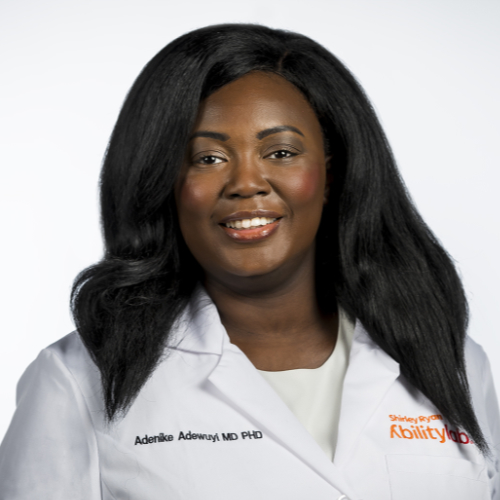
Adenike Adewuyi
Shirley Ryan Ability Lab / Northwestern University
USA
I am a physician-scientist and Assistant Professor of Physical Medicine and Rehabilitation and Neurology at Northwestern University and the Shirley Ryan AbilityLab in Chicago. I completed my undergraduate studies in Engineering Sciences at Harvard University in 2009. I subsequently enrolled in the Medical Scientist Training Program (MD/PhD) at Northwestern University. I completed my doctoral work in rehabilitation and neural engineering in 2016 at the Center for Bionic Medicine at the Shirley Ryan AbilityLab under the mentorship of Drs. Todd Kuiken and Levi Hargrove where I studied advanced pattern recognition-based myoelectric control of partial-hand prosthetic devices. I completed medical school in 2018, medical residency in physical medicine and rehabilitation in 2022 and a neuromuscular fellowship in 2023. During my fellowship, under the mentorship of Drs. Colin Franz ad William (Zev) Rymer, I shifted gears to studying lower motor neuron and motor unit physiology in individuals with spinal cord injuries. The long-term goals of my research are to develop a clinically reliably paradigm of assessing the health of the peripheral motor system in those with motor complete or incomplete SCI, determine who can benefit from interventions to reverse paralysis, and develop interventions that improve nerve health and hand control.
Statement
Joining an international committee of early career researchers presents a compelling opportunity for me to deepen my engagement and impact within the global electrophysiology research community. As a physician-scientist, my journey has been defined by a commitment to advancing rehabilitation and neural engineering. By participating in this committee, I aim to expand my network, forging connections with peers and mentors worldwide. This exposure promises invaluable insights into diverse research methodologies and best practices, enriching my approach to studying the peripheral motor system in individuals with spinal cord injuries. Given my unique background, I hope to be a bridge between neuroscientists, engineers, and physicians. Moreover, serving in a leadership capacity will cultivate my organizational and advocacy skills, enabling me to contribute meaningfully to shaping research priorities and fostering inclusivity within the scientific community. Ultimately, I see this role as a pivotal step towards not only enhancing my professional development but also leveraging collective expertise to drive impactful change in rehabilitation sciences globally.
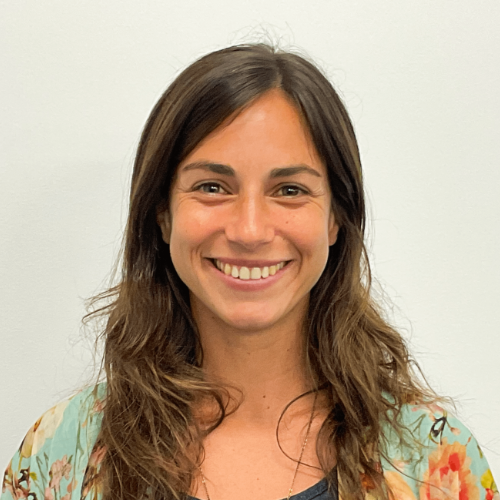
Manuela Besomi
The University of Queensland
Australia
Dr. Manuela Besomi is a physiotherapist and Research Fellow in the School of Health and Rehabilitation Sciences at The University of Queensland. She also holds an honorary position at Universidad del Desarrollo (Chile), leading a team focused on running injury research. With a master’s in Clinical Epidemiology from Universidad de La Frontera and a Ph.D. in Rehabilitation Sciences from The University of Queensland, her expertise spans epidemiology, musculoskeletal rehabilitation, and sports science. Manuela is the Project Coordinator of an NIH-funded research project examining the bio-psycho-social mechanisms underlying low back pain flares and serves as the Research Coordinator for the Consensus for Experimental Design in Electromyography (CEDE) project supported by ISEK. Awarded the 2022 Carlo J. DeLuca Award, she actively translates research into practice through initiatives like the CEDE project (ISEK), The Running Clinic (international network) and the SeRUN® project (Chile), aiming to bridge the gap between research and application in physiotherapy and sports science.
Statement
As an Early Career Researcher (ECR) and former co-chair of the committee, I am eager to share the insights gained over my three-year tenure to ensure continuity and advance the priorities established during the previous term. My passion lies in supporting fellow ECRs and students through initiatives aimed at enhancing career development and promoting diversity within an inclusive environment. As Coordinator of the CEDE Initiative supported by ISEK, I am dedicated to actively disseminating our initiatives and ensuring their effective implementation across the community. I am committed to fostering knowledge translation activities that benefit newcomers to the field and contribute to the advancement of the ISEK community. I look forward to collaborating with committee members to develop new initiatives that address emerging needs and opportunities for professional development among ECRs within the ISEK community. Drawing from my experience in leadership roles and my dedication to the values of ISEK, I am excited about the prospect of contributing to the committee’s efforts in shaping a supportive and dynamic environment for ECRs to thrive and contribute meaningfully to our field.
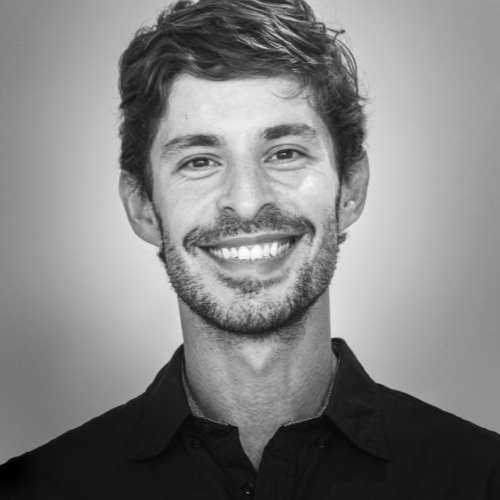
Gabriel Fernandes
Gabriel Fernandes is a physiotherapist from Brazil, now based in Australia, specializing in sporting injuries, with a special interest in Achilles tendinopathy.
His research career began in 2019 with an MPhil at QUT, alongside part-time work at a physiotherapy clinic in the Gold Coast. This experience enabled Gabriel to adeptly translate research into clinical practice, ultimately benefiting his ability to assist patients through evidence-based physiotherapy in clinical settings.
Articulating his MPhil into a PhD, which he is close to completing, Gabriel’s research focuses on neurophysiology, specifically examining intracortical inhibition and motor unit studies in runners affected by Achilles tendinopathy. Currently, also as a research assistant (and future postdoc), Gabriel investigates motoneuron excitability in ALS patients as a biomarker of disease progression. This role not only challenges him intellectually but also opens new perspectives on possible work in the field of applied physiology, particularly in motor neurone analysis.
Statement
I’m excited to apply for a role on the Early Career Researcher Committee because I’m passionate about supporting my peers and enhancing our collective experience within ISEK. As an early career researcher, I understand the unique challenges we face, from navigating career paths to finding networking opportunities.
I would love to contribute by helping develop programs that are both engaging and valuable. I’m particularly interested in creating workshops that offer practical skills and fostering a community where everyone feels included. I believe that by connecting ECRs with experienced professionals, we can open doors to new collaborations and opportunities.
Creating a more inclusive and supportive community is important to me, and I’m also keen to help organize events that facilitate networking and mentorship, creating opportunities for ECRs to learn from established professionals and from each other. I’m looking forward to working with others who share this vision and helping to make a positive impact on the ECR community.
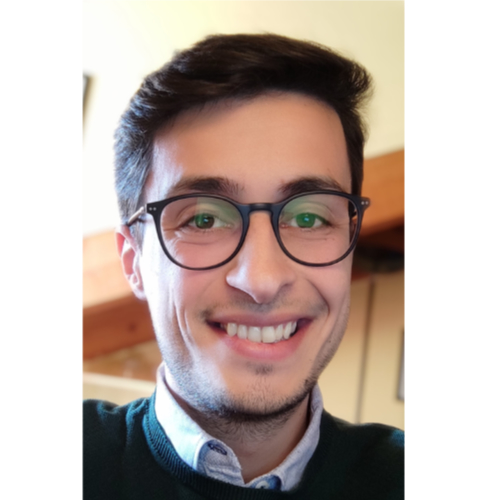
Marco Ghislieri
Polytechnic University of Turin
Italy
In 2017, I embarked on my scientific journey at the Polytechnic University of Turin (Italy), where I began a Ph.D. in Bioengineering and Medical and Surgical Sciences in collaboration with the University of Turin. In 2021, I successfully defended my doctoral thesis titled “Muscle Synergy Assessment During Cyclic and Non-Cyclic Movements: Methodological Issues and Application-Oriented Studies”. Since 2021, I have been serving as an assistant professor in the Department of Electronics and Telecommunications at the Polytechnic University of Turin (Italy). The primary focus of my early career is to understand how the central nervous system coordinates muscle contractions to produce movements in both physiological and pathological conditions (such as neurological and orthopedic diseases). To achieve this, I use experimental paradigms that involve extracting muscle synergies from surface electromyographic signals during cyclical and non-cyclical movements. Additionally, I am exploring innovative techniques in neuro-engineering and neural computation to assess alterations in the motor control system due to neurological diseases.
Statement
I am excited about the opportunity to join the Early Career Committee of the International Society of Electrophysiology and Kinesiology. I am eager to contribute to the advancement of the field and support early-career researchers. My background in bioengineering, along with previous experience in clinical studies focusing on neurodegenerative diseases, has given me a strong foundation in electrophysiology and kinesiology. My research focuses on understanding human motor control system through muscle synergy analysis in both healthy and pathological conditions. This topic align with ISEK’s mission to advance knowledge in electrophysiology and kinesiology. If given the chance, I would advocate for early-career researchers by organizing workshops, networking events, and mentorship programs to support their professional development. My goal is to encourage interdisciplinary collaboration and share cutting-edge research to help early-career researchers build their skills and establish meaningful connections within the scientific community. By serving on this committee, I hope to support the next generation of leaders in electrophysiology and kinesiology, while also giving back to the community that has contributed to my growth. Thank you for considering my application.
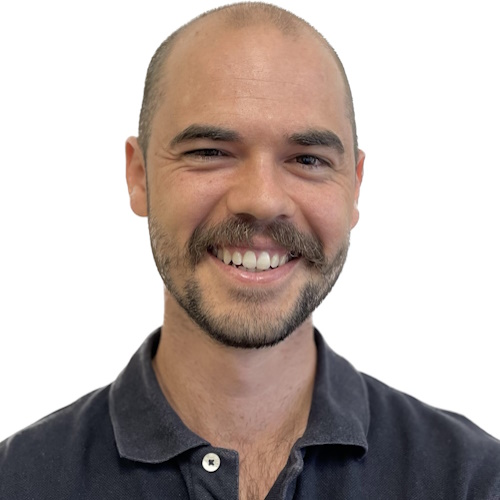
Benjamin Goodlich
Griffith University
Australia
Currently, I work as a Physiotherapy lecturer, training undergraduate physiotherapy students. I hold a Bachelor of Exercise Science, a Master of Physiotherapy, a Master of Medical Research, and a Doctor of Philosophy. My master’s thesis focused on validating the use of accelerometers combined with machine learning algorithms to detect and classify physical activity in children with moderate-to-severe cerebral palsy. My recently completed PhD explored the impact of serotonin signalling manipulation on human motor output and underlying neurophysiology. Through this research, I used medications to target serotonin receptors, gaining insights into how serotonin modulates human motor unit activity. My work aims to bridge the gap between clinical practice and research, enhancing our understanding of neurophysiological mechanisms to improve patient outcomes.
Statement
I am eager to join the Early Career Researcher (ECR) Committee of ISEK to support and advocate for students, postdocs, and early career researchers. Having experienced the challenges and opportunities of being a fledgling researcher, I am motivated to enhance ECR involvement within ISEK. I aim to contribute by supporting programs that provide practical training, resources, and networking opportunities. My experience in leading workshops and mentoring students and peers as a lecturer equips me to help create initiatives that address professional and career development needs. Additionally, I am committed to promoting diversity and inclusion within the committee. By ensuring broad representation of backgrounds and perspectives, we can better serve all ECR members and foster a more inclusive community. Thank you for considering my application. I look forward to contributing to the ECR Committee and advancing ISEK’s goals.
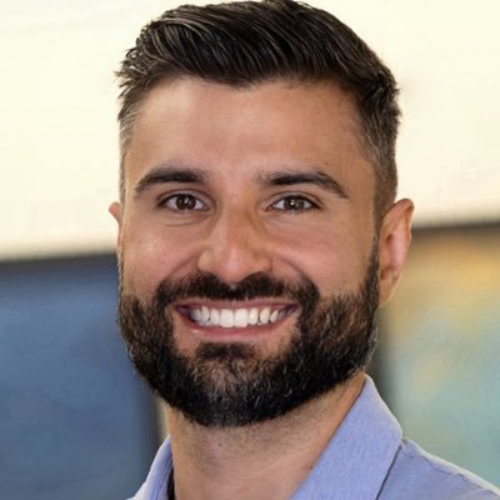
Lucas Orssatto
Deakin University
Australia
I received my MSc degree from the Federal University of Santa Catarina (UFSC, Brazil) in 2018, and my PhD from the Queensland University of Technology (QUT, Australia) in July 2022. After my PhD, I worked as a Postdoctoral Researcher at QUT and as an Honorary Research Fellow at the Royal Brisbane & Women’s Hospital on a research project collaboration between both institutions, funded by a Motor Neurone Disease Research Australia Innovator Grant. I currently hold an Alfred Deakin Postdoctoral Research Fellowship at the Institute for Physical Activity and Nutrition (IPAN) at Deakin University (Australia).
My main research areas include the neurophysiology of aging, disease, and exercise. My current research projects focus on using HD-EMG to develop novel biomarkers of Motor Neurone Disease progression and to understand the neural factors contributing to reduced physical function in Sarcopenia. My research also embraces collaborations with various fields, including sports performance, engineering, nutrition, and physiotherapy.
Alongside my scientific career, I have a strong history of community engagement and volunteer work, aiming to benefit society by translating the latest research findings into practice for the broader community with various health conditions.
Statement
I am excited to nominate myself for the ISEK ECR Committee for the 2024-2026 term. As a Postdoctoral Research Fellow with eight years of experience in the field, I am ready to contribute to the diverse community of ISEK ECRs dedicated to advancing our understanding of human movement and the neuromuscular system.
I am passionate about encouraging collaboration and knowledge exchange among ECRs from diverse backgrounds. If elected, I plan to initiate and support activities that promote networking, mentorship, and professional development opportunities for ECR members. I am especially committed to promoting opportunities for ECRs from lower-income and less favoured countries, determined to facilitate equity and equality within our community. By removing barriers to participation and creating platforms for sharing research and discussing challenges, I hope to connect researchers from different continents and backgrounds, strengthening our community and inspiring the next generation of scientists in electrophysiology and kinesiology, regardless of their circumstances.
I am particularly interested in developing strategies to enable international travel and visiting fellowship fundings for MSc and PhD students. This would provide opportunities for students to visit laboratories and conduct research overseas, experiencing different research groups and universities. Such strategies would enhance networking and knowledge sharing between groups, allowing students to grow experiencing different research cultures and environments in different countries.
ISEK’s commitment to interdisciplinary collaboration and scientific excellence aligns with my professional values, and I am enthusiastic about the opportunity to contribute to the society’s leadership and to support the development of ECRs within the community.
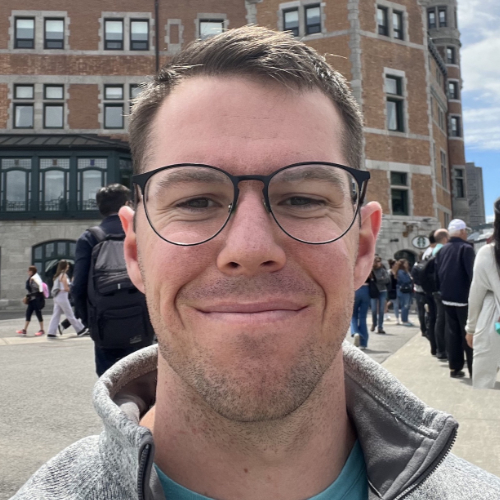
Jacob Thorstensen
Bond University
Australia
I am a teaching and research academic at Bond University in Australia and a recently appointed Editorial Board Fellow at The Journal of Physiology. I have a PhD (Griffith University, Gold Coast, Australia) and postdoctoral training (The University of Queensland, Brisbane, Australia) in human neuroscience. My research spans the neural control of movement, neuropharmacology, and exercise physiology. Regarding technique expertise, I have extensive experience with non-invasive brain, spinal cord and nerve stimulation procedures that quantify or modulate the output of the human nervous system and muscles. I have also used several forms of EMG to study human muscle activation. In addition to my strong background in research, I have over 8 years of teaching experience across three leading Australian universities (Bond University, The University of Queensland, and Griffith University) where I have taught anatomy, physiology, pharmacology, and neuroscience content to students enrolled in clinical and science programs.
Statement
To date, I have attended four consecutive ISEK conferences (2018, 2020, 2022, 2024), and I am well-familiar with the breadth and quality of work presented by PhDs and other ECRs at these meetings. I have also contributed to these conferences myself, having presented three times orally, organised a symposium, and been an author on several other abstracts. I have also been a finalist for the student oral presentation awards in 2020 and previously received a travel award (2022 congress).
I would like to contribute to the ISEK ECR committee as I believe ECRs need a strong representation and voice in the current research/academic climate. Since 2020 (i.e., since the pandemic started), ECRs have been disproportionately affected by factors such as loss of research funding and the lack of international/interstate travel preventing networking at conferences and lab visits. ECR committees provide better advocacy for early career scientists and are in a fantastic position to mitigate some of the above-mentioned issues.
I would like to be involved in organising ECR related events, awards and/or other opportunities within ISEK, and/or collating feedback from ECRs or more senior members within ISEK to improve the ECR experience. I think that more frequent online ECR satellite meetings or symposia would be of great interest to PhD students and other ECRs. These may be clustered in relation to certain topics and may be used to promote intra-society collaboration, and it would be great to be involved in this.
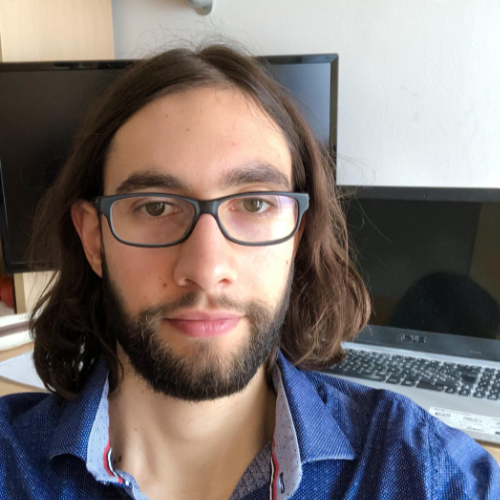
Giacomo Valli
University of Brescia
Italy
Dr. Giacomo Valli earned his master’s degree in Sports Science for Health and Prevention, followed by a research scholarship in Molecular Biology of the Muscle at the University of Urbino (Italy). He then completed a Ph.D. in Biomedical Sciences at the University of Padova (Italy). He is currently a postdoc researcher at the University of Brescia under the supervision of Prof. Francesco Negro. His research mainly focuses on investigating the mechanisms underlying the neuromuscular degeneration induced by muscle disuse, disease and ageing. Over time, Dr. Valli developed a keen interest in creating and optimizing the algorithms necessary to perform these investigations. Dr Valli is a strong supporter of the open science movement in the neuromuscular physiology field. His main contribution was the development of openhdemg, an open-source framework dedicated to the analysis of motor unit behaviour. He has translational expertise in molecular biology, physiology and electrophysiology of the muscle, which could be helpful to better integrate electromyography and kinesiology with other disciplines.
Statement
I began using HD-EMG during my Ph.D., and at that time, I was the only member of my research team working with this technique. This made it quite challenging to get started. My first opportunity to interact with experienced researchers in the field was at ISEK 2022, my first international conference. During ISEK 2022, I attended helpful workshops and met researchers whose articles I had been reading. I was struck by the uniquely friendly and supportive environment, which allowed me to form connections with peers who later became friends and collaborators. Since then, I have attended other conferences, but none have matched ISEK in terms of networking and learning opportunities. Recently, ISEK 2024 provided me with a platform to showcase my research and receive valuable feedback and connections, reinforcing my positive experience with the ISEK community.
In light of these positive experiences, I am eager to contribute to the ISEK community by serving on the Early Career Researcher (ECR) Committee. I am particularly interested in fostering a supportive and collaborative (rather than competitive) environment for new researchers. I would like to contribute to ECR activities aimed at facilitating networking opportunities and collaborative research. By doing so, I aim to contribute to the growth and inclusivity of the society, ensuring that other early career researchers can benefit from the same positive experiences and opportunities that I had.
Graduate Students
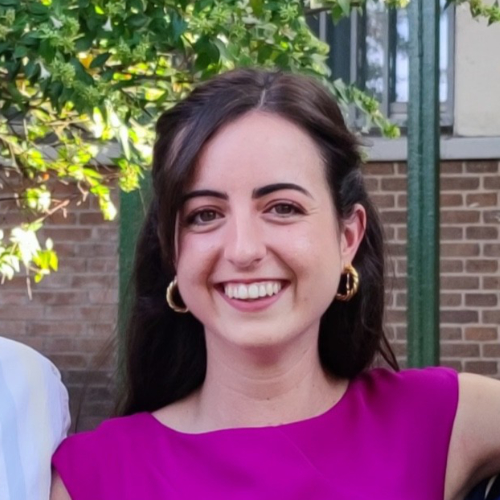
Marina Algaba Vidoy
Universidad Politécnica de Madrid
Spain
Marina Algaba Vidoy was born in Málaga (Spain) on August 13, 1998. She completed her Undergraduate degree in Biomedical Engineering at la Universidad de Málaga. In September 2020, she moved to Madrid (Spain) to pursue a Masters in Neuroscience at la Universidad Autónoma de Madrid, with a focus on motor control mechanisms within the brain. Marina completed her Masters’ research within the Spanish National Research Council (CSIC) facilities under the supervision of Dr. Juan C. Moreno and in collaboration with Dr. Giovanni Corvini from Università Roma Tre (Italy); this research was focused on designing an experimental platform to analyze bilateral electromyographic (EMG) activity during wrist extension tasks using high-density EMG. Through her Masters’ research, Marina discovered her passion for EMG her which led her to join the “AI4HealthyAging” project, wherein she became responsible for the ideation and execution of EMG protocols for the measurement of muscle activity in patients with Parkinson’s disease during gait over irregular terrains. She additionally contributed and applied her knowledge of EMG to various collaborative research projects, including ExoStim where EMG was measured in patients with incomplete spinal cord injuries as they completed various gait trials assisted by an exoskeleton while receiving varying levels of spinal cord stimulation.
In October 2022, Marina started her PhD in Biomedical Engineering at la Universidad Politécnica de Madrid, with a research focus on characterizing EMG signals in patients with Parkinson’s disease to elucidate features which differentiate this disease from other motor disorders (such as stroke or spinal cord lesions). To accomplish this characterization, Marina seeks to analyze all aspects of muscle activity through muscle synergies and time-frequency domain approaches. Ultimately, this research seeks to inform novel diagnostic tools for clinicians and identify potential avenues for personalized rehabilitation strategies. Marina is eager to share her knowledge and learn from other passionate researchers within the ISEK community as her research advances. Her determination and passion for continued learning has inspired this desire to be further involved within the executive committee and she hopes to be able to connect with members around the world through this position in the coming years!
Statement
Dear colleagues, I am Marina Algaba Vidoy and I am excited to announce my candidacy for the Early Career Researches (ECR) committee with the firm intention of advocating for the interests of all ECR, fostering a stronger, more cohesive and collaborative community.
My vision for the ECR committee focuses on several key aspects:
- Representation and advocacy for ECR interests: I commit to listening and representing the concerns and needs of ECR, ensuring that their interests are protected in all relevant ISEK decisions.
- Effective and smooth communication: I will promote open and constant communication between ECR and experienced researchers, encouraging mentorship opportunities that guide career development through knowledge exchange and support.
- Academic and scientific activities that drive interdisciplinary collaboration and innovation, as well as enhancing skills beyond science, such as leadership and communication, crucial for advancing research capabilities.
- Social and networking events: I firmly believe in the importance of interpersonal relationships. Therefore, I will push for the organization of social activities that allow to get to know each other better, strengthen bonds and form lasting connections.
- Inclusion and Diversity: I will foster an inclusive and diverse environment where all members, regardless of their background, gender, or discipline, feel valued and respected. Diversity enriches our community and is fundamental for the advancement of science.
I want to conclude by sharing something personal. If you’ve seen me at conferences, you may have observed that I often arrive alone and end up belonging to different groups, maintaining these friendships over time. Obviously, in those moments, anxiety and insecurities arise, but I try to be resilient and consistently prioritize commitment and networking as I’m passionate for sharing ideas and learning about different cultures and working methods. I thrive on challenges, and I want this to be my next one, because I would love to be an active part of this community.
Thank you for your consideration and support!
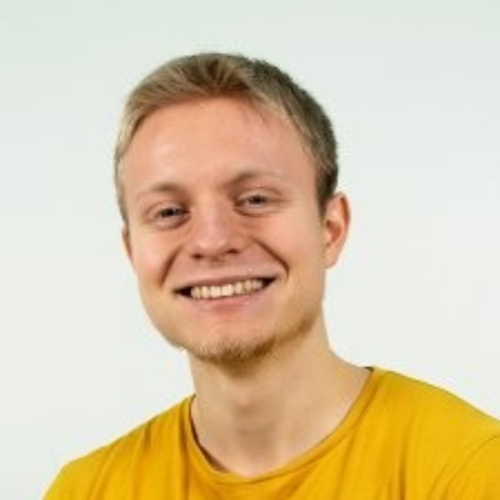
Francois Dernoncourt
Côte d’Azur University
France
I am currently a French PhD student working on the neural control of movement. I have a broad interest in science and a passion for physical training, with Parkour being my main sport. Initially studying game design, I shifted my focus to sport science, drawn by the scientific aspects of physical activity. This led to a continued interest in the field, resulting in my pursuit of a PhD with a focus on neuroscience. My current research explores how the central nervous system controls the vast number of motor neurons in the body. Additionally, I am an avid consumer of science communication content, and I strive to contribute to the effort of communicating science to the general public.
Statement
I am eager to be considered for the student/young researcher committee to connect with fellow researchers in all fields related to movement sciences. Engaging with other researchers will broaden my perspectives, help me connect with people from other labs internationally, and allow me to learn a lot about both theories and methods.
I am particularly enthusiastic about contributing to the committee by organizing and participating in online meetings such as lectures, workshops, or journal clubs. These events will provide valuable opportunities for knowledge exchange and collaboration among young researchers. Additionally, I can contribute to the society’s communication efforts by creating visuals such as posters, illustrations, and logos. Thanks to my background in game design, I have developed a taste for visual design, and I hope to assist with the society’s outreach in this way.
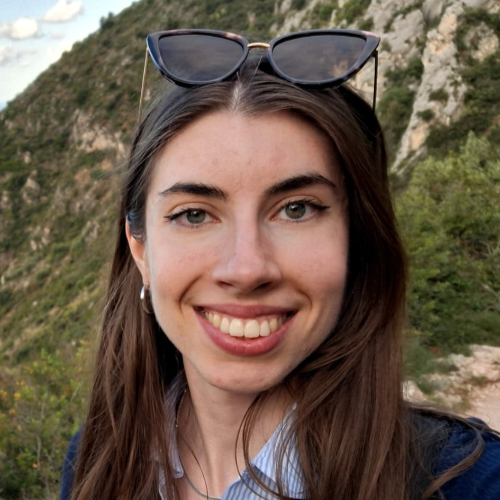
Ciara Gibbs
Imperial College London
United Kingdom
Hi, I’m Ciara!
I am a PhD student at Imperial College London. My academic journey also began at Imperial, where I obtained a master’s degree in Biomedical Engineering. During this time, I discovered my interest in motor control. Now, under the supervision of Dr. Juan Gallego and Professor Dario Farina, I am working on better characterising the neural constraints imposed on human motor control, with a focus on movement augmentation. My work is interdisciplinary, spanning electrophysiology, computational methods, and hardware development.
I am a big believer in open science and have helped develop open-source experimental and analytical EMG tools. This stems from my core interests in outreach and fostering welcoming and inclusive communities that represent everyone working in and interested in pursuing science careers. A significant part of my spare time has been dedicated to achieving this. I have engaged with students worldwide from diverse socioeconomic backgrounds, teaching them coding, data science, and mathematics to promote better distribution of opportunities and resources. I also work with local schools to give engineering career talks to showcase the accessibility and diversity of our fields.
Aside studying muscles, I enjoy working them at the gym, alongside drawing and reading!
Statement
Taking our first steps into academia is both exciting and daunting. Through the midst of failed experiments, those guiding me helped me learn to decouple scientific uncertainty from my sense of self. Without guidance, it’s easy to feel our goals become intangible, especially when under-represented.
Over five years, I have participated in and witnessed the pertinence of different guiding communities. As a tutor, I helped refugees take their first steps towards launching freelance careers in technology. I lead the UK’s largest undergraduate Women in STEM society and created the first university-based hackathon for women. Moreover, I continue to mentor students from underprivileged backgrounds, who lack within-school resources to prepare for university admissions.
Whilst I noticed that sharing knowledge was important, the embedded communities were more so. They provided resources that allowed individuals to steer their learning and self-development autonomously, whilst offering consolation in seeing the journeys of their peers.
At our conference, I was warmed by the community fostered by both senior and early career researchers. Inspired by the discussions, I am eager to bring my experiences and genuine interest in fostering inclusive, representative academic communities to the ISEK committee. I hope to strengthen the student network, to promote a sense of belonging, and facilitate more fluid collaborations and discussions. I would also love to help develop additional teaching resources, to better disseminate concepts in our fields.
Amongst the academic pressure, it is crucial to be grounded and supported by communities like ISEK, and our conviction in the science itself.
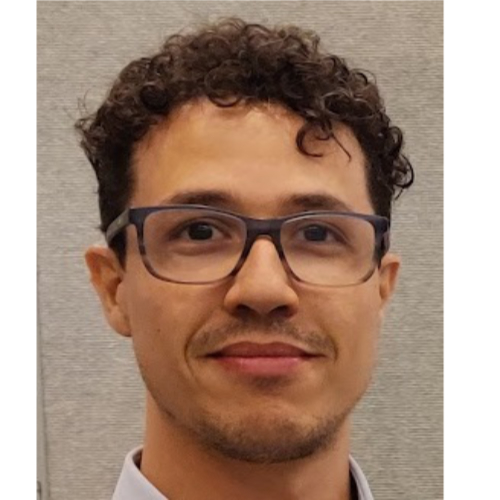
Jérémy Liegey
University College Dublin
Ireland
My name is Jérémy Liegey, I am a French PhD Student working in Ireland under the supervision of Professor Madeleine Lowery. My field of expertise and interests are EMG and HD-EMG as well as decomposition, motor control and Parkinson’s disease. I have attended every ISEK conference since 2018 where I was volunteering and got exposed to the great research done by our community.
Statement
I would like to be considered for a role in the ECR committee in order to get involved and have the voice of both PhD students early career researchers heard. ISEK has a quite steep cutoff for whom is considered an ECR or not, I think it would be good for this to change and for more voices to be represented. ISEK is also a growing society with lots of young talents that are already active parts of the community and who will eventually get to play an even bigger role as they step in towards more responsibilities. I would like for ECRs to be able to tap more easily into the vast amount of knowledge and expertise of the more experienced researchers of ISEK. I would also like for them to be able to meet and network with each other so that strong bonds and collaboration can be formed. To do so, we could start with building a more easily accessible member directory and facilitate communication in the periods between congresses.
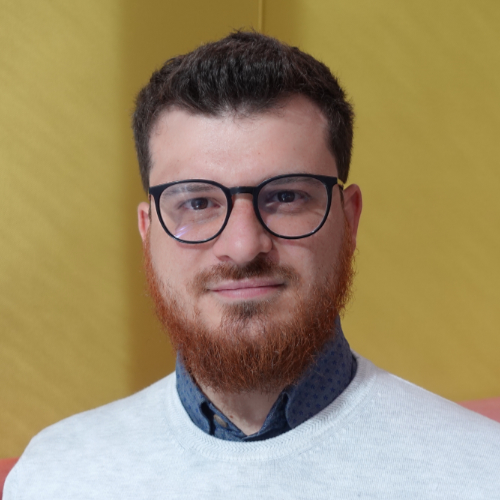
Giacomo Nardese
Queensland University of Technology
Australia
My insatiable curiosity has driven me to seek diverse experiences across various countries. I earned my undergraduate degree in Sports Science from the University of Urbino, Italy. Fuelled by a desire to understand biomechanics in individuals with low back pain, I pursued a Master of Science in Adapted Physical Activity at the University of Bologna, Italy.
My fascination with the intricate mechanisms underlying motor adaptations to pain led me to obtain a Master of Research from the University of Birmingham, UK. My experimental thesis focused on understanding how shoulder motor control is affected by pain perception. Presenting my work at ISEK 2022 in Quebec City was a turning point in my career. The vibrant community and intellectual dialogue with peers and senior researchers further motivated me to pursue a PhD.
Currently, I am a PhD candidate at the Queensland University of Technology in collaboration with the University of Queensland, Brisbane, Australia. My research focuses on understanding the supra-spinal physiological processes underlying shoulder motor control and how these central mechanisms adapt to pain. Bridging biomechanics with neuroscience allows for a holistic understanding of human movement, which I find fascinating.
Statement
I presented for the first time at ISEK 2022 in Quebec City, near the end of my Master of Research. This was my first deep dive into the intricacies of EMG studies. As a newcomer surrounded by “giants” of electrophysiology and movement science, I felt a strong connection to this community and became eager to contribute to its growth through various initiatives. One of my primary goals is to address a fundamental question: where can we find brilliant minds willing to collaborate on common publications? While the ISEK congress is an amazing opportunity, it’s not always feasible to attend. To overcome this, I propose creating a database of members, detailing their areas of expertise, career levels (Master, PhD candidates, ECR, MCR, or Senior researchers), and contact information. Additionally, I envision enhancing the ISEK website with an interactive map to geographically locate members, further promoting connections within the community. Showcasing research is also crucial for fostering connections. In collaboration with the Communications Committee, I plan to launch a YouTube channel featuring short video abstracts. Future and current members could voluntarily upload these abstracts when enrolling for future ISEK editions. ISEK is also a hub of learning. With this in mind, I aim to support additional editions of “ISEK around the World,” a great initiative that should be further promoted. I also advocate for the continued use and promotion of the CEDE matrices as up-to-date good practice guidelines. For all those reasons, I would like to be considered.
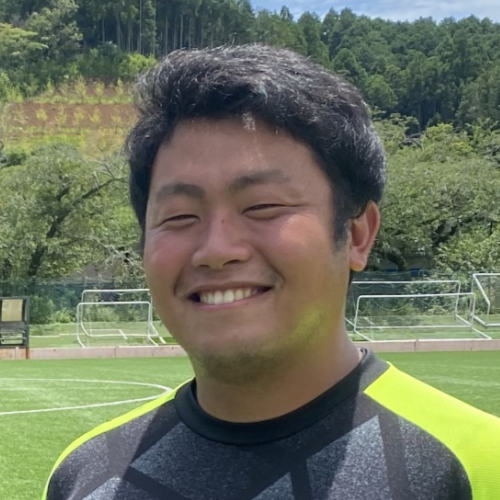
Taichi Nishikawa
Chukyo University
Japan
As a doctoral student in sports science, my research focuses on the training science for the older adults. Specifically, I aim to accurately capture the unique neuromuscular characteristics, such as motor unit, of the older individuals. By understanding these properties, I intend to develop tailored supplements and training regimens that enhance the effectiveness of strength training for older adults. This research holds the potential to significantly improve the physical health and overall quality of life for the older adults.
Statement
I have great respect for ISEK, not only for its commitment to educating young researchers but also for its progressive stance on embracing diversity within the academic community.
As a member of ECR, my goal is to contribute significantly to creating avenues for students and young researchers to delve into electrophysiology and gain accurate, comprehensive knowledge. I am passionate about fostering international interactions among young researchers, promoting a broader perspective, and understanding diverse backgrounds. This, in turn, helps young researchers grow both professionally and personally.
In my role as chair of the Local Organizing Committee for ISEK2024 in Nagoya, I successfully created numerous opportunities for young researchers to connect and engage with one another. Although the event lasted only one night, it laid the foundation for enduring friendships and professional relationships that I believe will last for decades. I am enthusiastic about the possibility of creating similar opportunities in the future, potentially through online platforms, to continue this valuable exchange.
I am particularly keen on extending the reach of ISEK activities to Japan and other parts of Asia. I believe my efforts can significantly contribute to the growth and global integration of the society, making it more inclusive and accessible to a wider audience.
In summary, my passion for education, dedication to fostering international collaboration, and commitment to expanding ISEK’s reach make me an ideal candidate for this role. I am eager to bring my experience and enthusiasm to the table, contributing to the continued success and growth of ISEK.
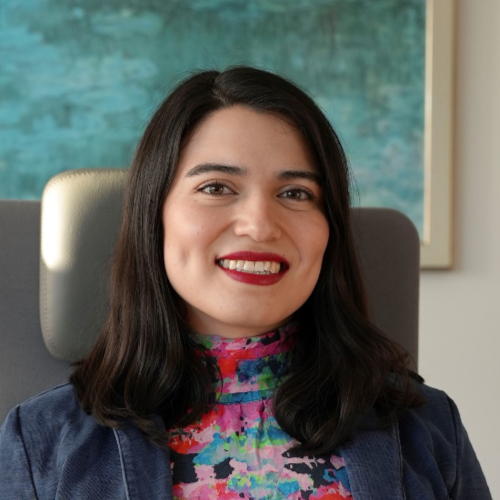
Elisa Romero Avila
RWTH Aachen University
Germany
I obtained my bachelor’s degree in Biomedical Engineering at Universidad La Salle, Mexico, and a master’s degree in Human Technology in Sports and Medicine at the German Sport University Cologne. I am currently a PhD student under the supervision of Prof. Catherine Disselhorst-Klug at the Department of Rehabilitation and Prevention Engineering at RWTH Aachen University, with a scholarship from Mexico and Germany’s federal government. My research focus is the development of assistive technologies, particularly for patients with spasticity. I am an active member of the International Society of Biomechanics (ISB), the International Society of Women in Biomechanics, and the International Society of Electrophysiology and Kinesiology (ISEK). I am also part of the Early Career Researcher Committee of ISEK. I have nine publications and over 40 oral and poster presentations. Moreover, I have contributed to the National Biomechanics Day Grant Program evaluation committee and have been a Reviewer for the Revista Mexicana de Ingenieria Biomedica. During my academic career, I won 4th place in the Developing Countries Grant Competition from the ISB in 2019, the Congress Travel Grant from the ISB in 2023, and the Diversity Travel Award from ISEK in 2024.
Statement
I have been a member of the ECR committee for one year and am eager to continue contributing for another term. My motivation comes from the enjoyment I’ve found in supporting the events and initiatives of the committee, as well as the togetherness I’ve experienced with the other members. This has encouraged effective teamwork, and I am eager to continue learning and growing within the committee. Additionally, I recognize the advantages that being part of this committee has afforded me, including networking opportunities, professional development, increased visibility, and the chance to enhance my decision-making skills, teamwork abilities, and social media presence.
During my year on the committee, I contributed to the development of the first “ISEK Around the World” event, which was a tremendous success, featuring experts from 12 countries. Additionally, I believe I efficiently executed my tasks and was an active member during the year. If selected to continue, I will again help in planning the “ISEK Around the World” event and aim to support the development of workshops that help young researchers build transferable skills such as time management, empathy, and career planning. I will also work on enhancing our newsletter content, expanding our social media presence, and planning the Deluca symposium.
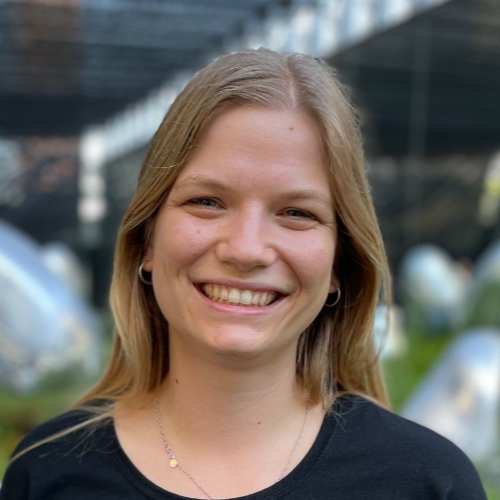
Manuela Zimmer
University of Stuttgart
Germany
Manuela Zimmer, is a research assistant and doctoral student at the University of Stuttgart, Germany, under the supervision of Filiz Ateş in the Experimental Biomechanics Group. Her PhD started in May 2021 after graduating from the medical engineering program at the University of Stuttgart (M.Sc. and B.Sc.) and University of Tübingen (B.Sc.) and focuses on in vivo estimation of skeletal muscle forces, employing methods like surface electromyography, ultrasound shear wave elastography, magnetic resonance imaging, and finite element modeling. Currently, in collaboration with the Auckland Bioengineering Institute in New Zealand, she is establishing an imaging and modeling framework for studying muscle mechanics.
Manuela has authored seven journal papers (three as a first author) and presented at seven international conferences. She is a member of ISEK, the International Society of Biomechanics, International Women in Biomechanics, and the Virtual Physiological Human Institute, fluent in German and English, with basic proficiency in French.
Her diverse experiences include internships at Philips Medical Systems and an orthopedic hospital, as well as roles as a teaching assistant, student council member, and treasurer of a medical student association. Passionate about sports, she holds a ski alpine instructor license and is actively involved with the German Red Cross.
Statement
I am dedicated to constructing an in vivo muscle force estimation model, striving to characterize muscle mechanics and understand muscular adaptations. For my studies, I am using ultr-sound shear wave elastography, surface electromyography, magnetic resonance imaging, and finite element analysis, demonstrating a wide range of methodologies to assess skeletal muscle behavior. I want to contribute to the development of new experimental and modeling approaches for a better understanding of skeletal muscle mechanics and “through ISEK” seek to establish a platform of scientific exchange for these emerging technologies.
Given my history of being a student council member at the University of Stuttgart, organizing nationwide student networking events, and being an active council member of my local Red Cross organization, I have experience in committee work. Through my current research stay at the University of Auckland, I can serve with experiences and networks from Germany and New Zealand.
I value the ISEK community to learn, exchange, and discuss new insights into skeletal muscle behavior. I comprehend the challenges of interdisciplinary work and appreciate the diverse backgrounds and skills that ISEK members provide. ISEK 2022 was the first conference I attended and I experienced the positive impact of connecting, discussing, and learning from other researchers. Given the opportunity to be part of the ECR committee, I want to contribute to the warm, open, and inclusive community ISEK established and support young researchers around the world. I aspire to connect with peers globally and represent the young generation of researchers in the ISEK society.
